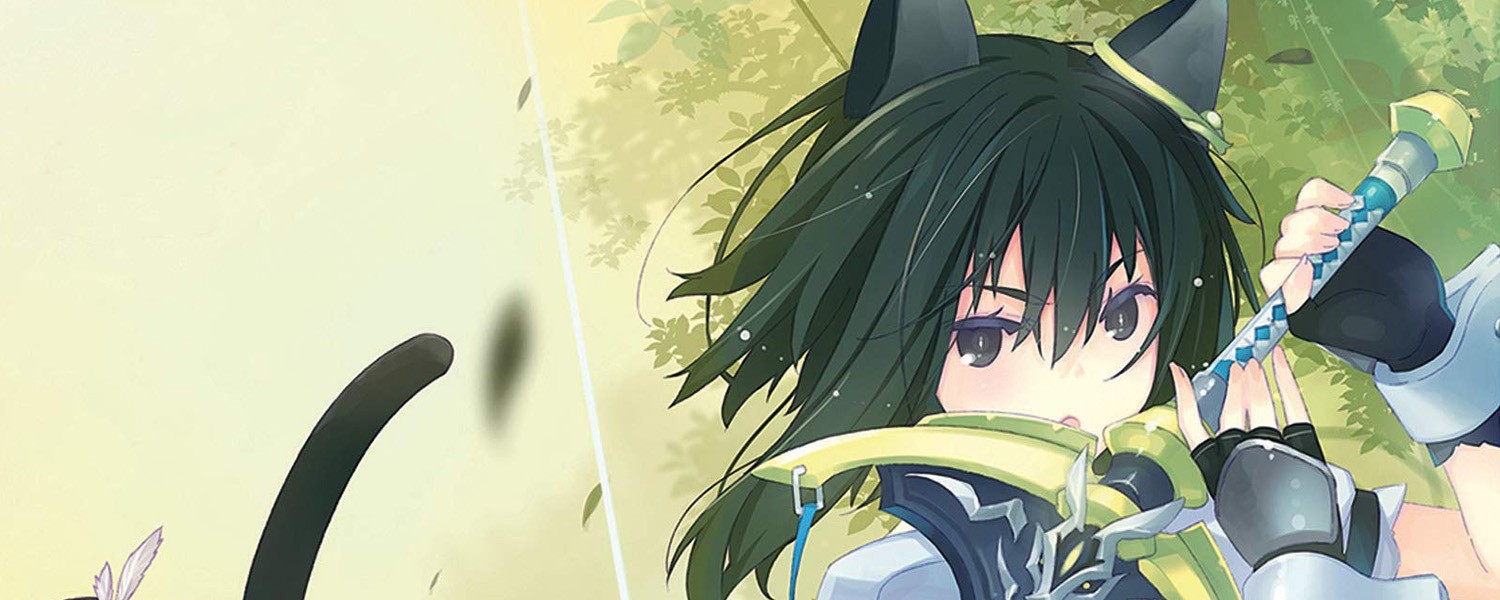It’s been many years since the isekai boom began and it shows no signs of declining. Re:Zero and Mushoku Tensei have both been given what I can only describe as royal treatment in their adaptations, seeming to push beyond the norms of the typical light-novel-turned-anime. As long as their popularity continues, I don’t doubt the current trend will too.
And why not? It’s an established genre and many classics—both in Western literature and Japanese media—were built around the idea of transference to another world.
But this is not a post about whether their perceived market dominance is good or bad; this is a post about the works that bill themselves as isekai when in truth they really don’t need to be.
Most of these begin the same way as almost any isekai: with the transference or reincarnation of the protagonist into another world. The key difference, however, is that this detail often has little relevance to the plot1 and adds practically nothing meaningful beyond the genre designation and an over-reliance on stat-windows, skills, and statuses2. One would be forgiven for thinking that these works were shoehorned into the category merely to cash in on the trend, leading to the inclusion of a few token isekai tropes that serve no deeper purpose.
Let’s take a peek at Tensei Shitara Ken Deshita.
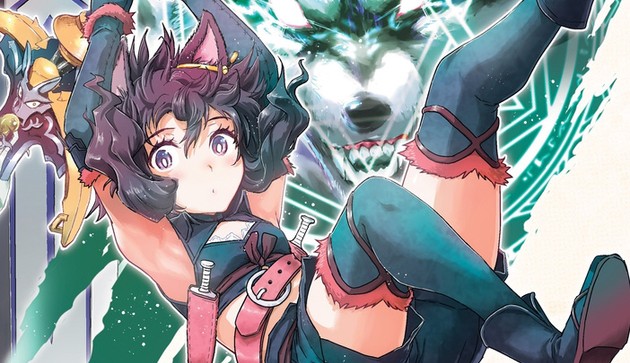
Tenken is exactly the type of isekai I describe above. Our protagonist suddenly finds himself in another world, his form that of a sword stabbed into an altar. There are skills and statuses and he levels up by killing monsters, but that’s about as far as it goes. I can’t claim to know for sure whether it becomes relevant later on, but thus far I haven’t felt that any of those elements factor into what makes it an enjoyable series to read.
In the end, it’s a fantasy but with a few of the trappings of an isekai. Little3 would be lost if they were omitted entirely. Tenken is a rare series that decides to centre on the sentient weapon. Even without falling back on isekai tropes, it would be more than interesting enough to follow a talking sword raising his loli catgirl daughter into a super-human monster slaying machine.
Youjo to Sukoppu to Magan Ou is another of these.
Our protagonist’s brutal demise during the opening might contextualise his entry into the world and some aspects of his mindset towards others, but this is nothing that could not have arisen were he a denizen of the world from the start. The same can be said for the unique skill he received owing to the circumstances of his death. Were it not for the frequent allusion to stats, skills, statuses, levels, and nametags, there would be little to tie this story to the Earth we know.
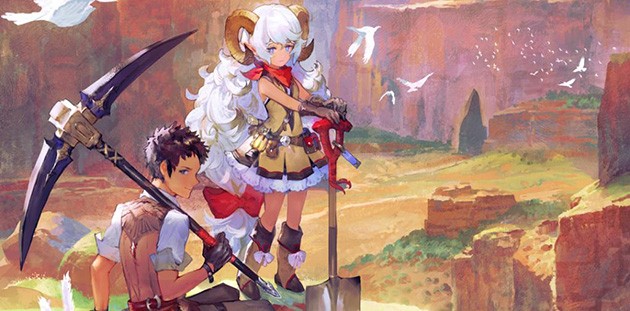
Otherwise, Scoop could easily present itself as a fantasy. It follows a youth who befriends a sheep-like girl with a shovel and decides to aid her in her quest to become an adventurer. Early themes revolve around the consequences of silently bearing with uncomfortable situations in the hopes of avoiding trouble, or turning a blind eye to others’ plights. We get into some fairly standard vengeance tropes as a result, but other than the sporadic moments of violence, it’s a relatively heart-warming series4.
I might have singled out two titles that fall a bit short of mainstream, but one could argue that Tate no Yuusha no Nariagari falls into this category. Perhaps even Tensei Shitara Slime Datta Ken could survive without its connections to modern Japan. There are plenty of popular isekai that have tenuous roots in the genre at best.
In contrast are the works that use them well. A good portion of the charm in Youjo Senki lies in the juxtaposition between Tanya’s childlike physical appearance and her elite salaryman’s mind. Take that away and her philosophical clashes with Being X go along with it, stripping it of its identity and leaving us with magical military series—still capable of entertaining perhaps, but lacking its soul.
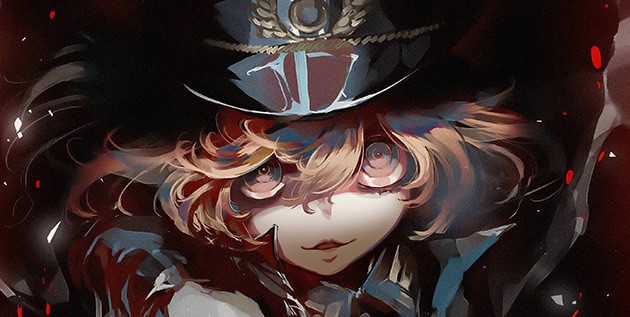
Honzuki no Gekokujou is built around a common isekai trope5. There are many series in which our almost unnaturally erudite protagonist uses their knowledge of modern science and technology for the betterment of a quaint medieval world. In Myne’s case, it’s a little different. While she does propose a few general quality of life improvements, her efforts are largely directed towards a singular goal: to fill the world with books and become a librarian6. It’s very easy to get swept up in her dream and invest in her successes and failures. She’s the type of protagonist you just love to root for—unwilling to yield despite the difficulties she faces on account of her low social standing and frail constitution.
The last I’ll mention for now is one I was hesitant to approach in this context. Strictly speaking, Kage no Jitsuryokusha ni Naritakute shouldn’t have to be an isekai, but if it wasn’t I doubt it would work half as well. It has secured itself a place amongst the dumbest and edgiest series I’ve read, but that’s exactly what makes it entertaining to follow and those aspects are quite firmly rooted in its isekai identity. This is essentially a series in which a chuunibyou takes advantage of his reincarnation into a fantasy world to act out his delusions, only for those delusions—unbeknownst to him—to reflect the truth of reality. It’s unapologetic in its absurdity and delights in making the reader cringe—a comedy at its own expense in the truest sense.
There are many many more, of course, but these lists are far from exhaustive. It should also be noted that my observations on the redundancy of the genre tag in those first few series is nothing against the modern isekai genre itself—I appreciate more than a few, both popular and niche, ranging from Re:Zero and Mushoku Tensei to Isekai Ojisan and a grand swathe in-between.
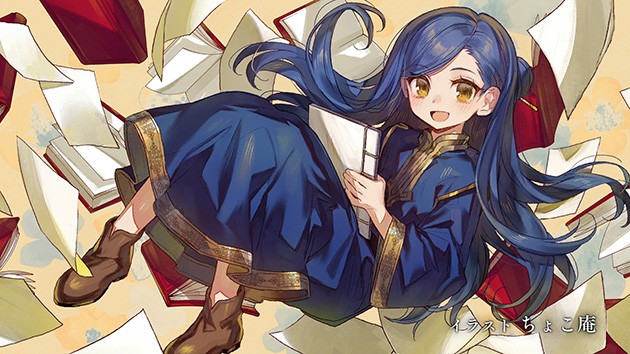
I also enjoy every one of the specific works highlighted above, regardless of any needless reliance on isekai tropes. Perhaps the present market is biased enough towards isekai that it really does justify including its tropes in the hopes that it could increase the chances of securing a publisher. Perhaps some editors are too heavy-handed in inserting clichés they know will sell well. Or perhaps the creators simply want to pay homage to the tropes and genres they love by including them even if they contribute little in the long run. I certainly wouldn’t begrudge them that. It’s their work to produce as they see fit, even if those aspects aren’t always to my taste!
We shouldn’t neglect the oft-expressed desire to be able to live vicariously through the protagonists either—it’s presumably why so many in the isekai genre are otaku in some way, shape, or form. While I can’t say I feel the same way, there are countless readers who like to be able to see themselves in the characters they follow7 and it’s more than fair for authors to want to cater to that.
This does, however, vastly increase my appreciation for series such as Dungeon Meshi and Sousou no Frieren—series that wear their fantasy labels with pride.
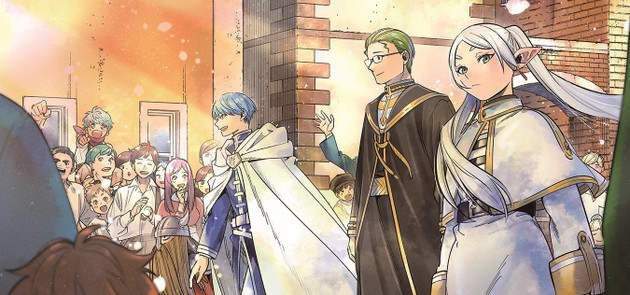
Frieren’s titular character is an elf who has outlived almost all of those she once held dear8. We begin beyond the typical end for a classic fantasy story—beyond the defeat of the final villain and beyond the party’s triumphant return. Beyond even the hero’s death. Frieren is a protagonist struggling with the reality of her own longevity, knowing she missed valuable moments she can never relive. It’s about coming to terms with the fleeting nature of life and trying to live on without repeating the same mistakes.
Her melancholy is palpable, though rarely directly expressed, and this lends an uncommon beauty to its portrayal. It fully deserved winning the Manga Taisho 2021 Grand Prize.
In a similar fashion, Dungeon Meshi boasts a concept splendidly executed, though in its case it’s a few steps closer to the unique. There are a plethora of manga and light novels that revolve around dungeon crawling, but none approach it with quite the same mindset as Dungeon Meshi; where most might focus on the hunt for riches or the desire to ‘clear’ the dungeon in some fashion, Dungeon Meshi focuses on the monsters themselves.
Making meals of them, to be specific.
It’s a fascinating concept and shows a surprising degree of thought on the part of the mangaka. There is of course an underpinning plot that holds everything together, beginning with the quest to rescue Laios’ sister from the belly of a hungry dragon and escalating many times from there. For the most part though, the food is in focus, and the characters’ reactions to it provide one of the main sources of humour.
I feel compelled to mention one last series, though in truth, Made in Abyss feels like a stereotypical inclusion at this point9 and it lives squarely on the boundary between sci-fi and fantasy. Yet in the end, its approach to world building errs more towards the fantastic and therein lies one of its greatest strengths. Couple this with a cruel and unforgiving storyline that revels in depriving its characters of hope and you have a series which feels like it updates far too slowlyberserk.
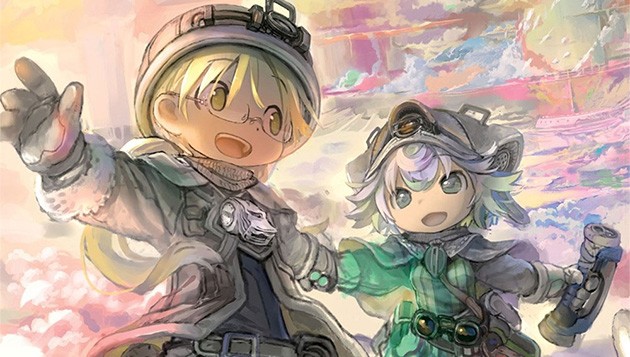
And so this is where we reach some form of conclusion. My thoughts on the subject are quite straightforward: many of the initial series mentioned have premises that should be more than capable of standing on their own. In these cases, the isekai connection contributes little that holds much meaning to me. We could throw those aspects out and I would be just as compelled to continue reading. Perhaps I’d even want to read them more!
See, we need more cosy fantasy series like Frieren and Dungeon Meshi, just like we need more smart sci-fi in the vein of Akudama Drive10. This doesn’t mean the two genres have to be mutually exclusive, or even that there needs to be fewer isekai. It only means that I hope someday fantasy regains its prestige and doesn’t come packaged so often with isekai tropes.
-
It kind of does, but it’s not as extreme as the likes of Berserk!
↩ -
Except perhaps within the first chapter or two where it’s mentioned.
↩ -
I don’t hate these per se, I just find their presence a little too…predictable.
↩ -
In my opinion.
↩ -
Not something you type very often.
↩ -
One that—to be frank—we see almost too often.
↩ -
Perhaps the noblest of isekai goals.
↩ -
I am, in fact, the complete opposite—I much prefer both reading and writing about characters who are completely unlike me.
↩ -
A concept I’ve often wanted to explore in my own writings!
↩ -
Although I still wonder how many of its purported fans have read—and would continue to read—the manga itself given its approach to subjects that have only grown more taboo to Western sensibilities.
↩ -
TL Note: Need means ‘I would really like, please!’
↩
